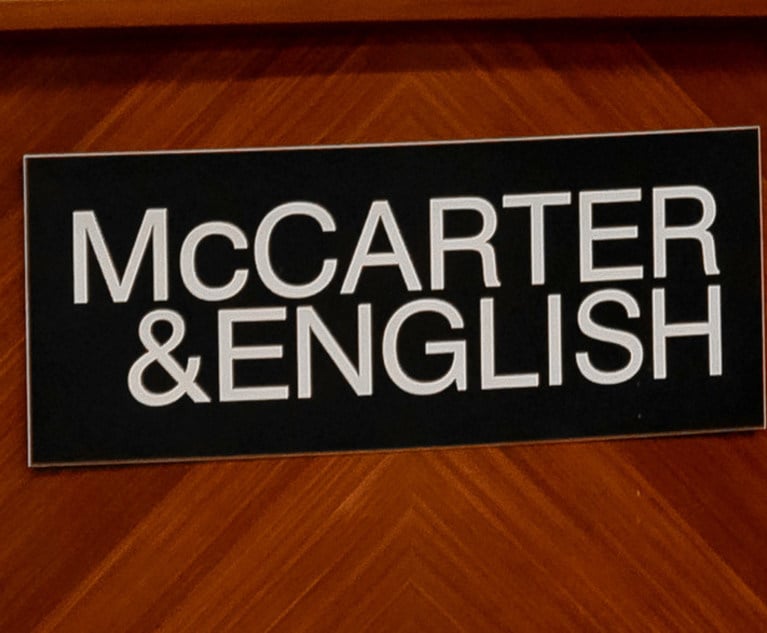 Credit: bxtr/Adobe Stock
Credit: bxtr/Adobe StockNewly Formed DEI Practices Expect Heightened Demand During Trump Administration
“The only people that benefit from this are the lawyers, which is unfortunate,” said Gibson Dunn labor & employment co-chair Jason Schwartz of the uncertainty in the laws governing DEI issues.
November 12, 2024 at 06:00 AM
5 minute read
What You Need to Know
- Recently formed DEI practices and industry groups are gearing up for a busy four years with the change of administration.
- Uncertainty around civil rights laws and how they’ll be enforced is driving demand from corporations.
- Advisors said their clients aren’t planning on pulling back from DEI initiatives altogether.
In the past four years, numerous Big Law forms launched practices and industry groups geared at advising clients on matters related to their diversity, equity and inclusion (DEI) programs—and mounting backlash from the political right against the concept of DEI itself.
With the upcoming Trump administration, employers are bracing for opposition coming from lawmakers and federal agencies in addition to legal activists. That means more work for lawyers who counsel employers on their DEI practices. While DEI lawyers believe that the expected scrutiny may prompt some companies to reduce or eliminate their DEI programming, they also said most clients are holding firm in their convictions so far.
In addition to heightened scrutiny of DEI, a lack of clarity regarding how federal agencies like the Equal Employment Opportunity Commission view current practices is adding to the need for outside counsel. “There’s so much uncertainty in the law around this; the only people who benefit from this are lawyers, which is unfortunate,” said Jason Schwartz, a Gibson, Dunn & Crutcher labor & employment practice co-chair who also leads the firm’s DEI Task Force. “You want people to understand what the law is so you can follow it.”
Schwartz cited the EEOC’s conflicting response to the U.S. Supreme Court’s decision to overturn race-based affirmative action in college admissions last year as proof of the confusing regulatory landscape. While Chairperson Charlotte Burrows issued a press release noting that SFFA v. Harvard did not impact private employers’ DEI efforts, fellow Commissioner Andrea Lucas told Reuters that the decision should prompt private employers to take a “hard look” at DEI programming.
Mitchell Silberberg & Knupp labor & employment partner Louise Truong said she’s seen a steady stream of legal challenges against corporate DEI initiatives in recent months. “While it is hard to predict the timing and magnitude of any additional changes, we certainly anticipate an increase in demand,” Truong said. “There is a lot of speculation about how much further we’ll see anti-DEI sentiment creep into workforce regulation.”
Where Challenges May Come
DEI attorneys look to the Heritage Foundation’s Project 2025 as a potential blueprint for action during the second Trump administration. The document includes suggestions to eliminate disparate impact liability, which currently allows members of a protected group to sue on the basis of a policy’s discriminatory impact on them. Page 615 of the document also outlines the elimination of race and ethnicity data collection by the EEOC and the elimination of the Office of Federal Contract Compliance Programs, which currently exists to ensure federal contractors abide by a 1965 executive order for federal contractors to commit to nondiscrimination.
While such objectives may not touch every private employer with a DEI program, other aspects of Project 2025 could have a more widespread impact. For instance, DEI professionals interpret the document’s goal of “pursuing equal protection for all Americans by vigorously enforcing applicable federal civil rights laws” as a plan to use civil rights laws to investigate reports of reverse discrimination.
The document even signaled that DEI measures could be investigated for anti-competitive practices alongside environmental, social and governance (ESG) measures. “Managers, particularly in publicly traded corporations, who use their power to advance sets of fashionable moral beliefs, such as ESG/DEI, introduce agency problems into the shareholder relationship and appropriate corporate wealth for their own benefit,” Project 2025 states.
NOT FOR REPRINT
© 2025 ALM Global, LLC, All Rights Reserved. Request academic re-use from www.copyright.com. All other uses, submit a request to [email protected]. For more information visit Asset & Logo Licensing.
You Might Like
View All
How a Paul Weiss Associate’s Career Took Off With Help From a Social Mobility Alliance
6 minute read

Former McCarter & English Associate Fired Over 'Gangsta Rap' LinkedIn Post Sues Over Discrimination, Retaliation
6 minute read
T14 Sees Black, Hispanic Law Student Representation Decline Following End of Affirmative Action
Trending Stories
- 1Settlement Allows Spouses of U.S. Citizens to Reopen Removal Proceedings
- 2CFPB Resolves Flurry of Enforcement Actions in Biden's Final Week
- 3Judge Orders SoCal Edison to Preserve Evidence Relating to Los Angeles Wildfires
- 4Legal Community Luminaries Honored at New York State Bar Association’s Annual Meeting
- 5The Week in Data Jan. 21: A Look at Legal Industry Trends by the Numbers
Who Got The Work
J. Brugh Lower of Gibbons has entered an appearance for industrial equipment supplier Devco Corporation in a pending trademark infringement lawsuit. The suit, accusing the defendant of selling knock-off Graco products, was filed Dec. 18 in New Jersey District Court by Rivkin Radler on behalf of Graco Inc. and Graco Minnesota. The case, assigned to U.S. District Judge Zahid N. Quraishi, is 3:24-cv-11294, Graco Inc. et al v. Devco Corporation.
Who Got The Work
Rebecca Maller-Stein and Kent A. Yalowitz of Arnold & Porter Kaye Scholer have entered their appearances for Hanaco Venture Capital and its executives, Lior Prosor and David Frankel, in a pending securities lawsuit. The action, filed on Dec. 24 in New York Southern District Court by Zell, Aron & Co. on behalf of Goldeneye Advisors, accuses the defendants of negligently and fraudulently managing the plaintiff's $1 million investment. The case, assigned to U.S. District Judge Vernon S. Broderick, is 1:24-cv-09918, Goldeneye Advisors, LLC v. Hanaco Venture Capital, Ltd. et al.
Who Got The Work
Attorneys from A&O Shearman has stepped in as defense counsel for Toronto-Dominion Bank and other defendants in a pending securities class action. The suit, filed Dec. 11 in New York Southern District Court by Bleichmar Fonti & Auld, accuses the defendants of concealing the bank's 'pervasive' deficiencies in regards to its compliance with the Bank Secrecy Act and the quality of its anti-money laundering controls. The case, assigned to U.S. District Judge Arun Subramanian, is 1:24-cv-09445, Gonzalez v. The Toronto-Dominion Bank et al.
Who Got The Work
Crown Castle International, a Pennsylvania company providing shared communications infrastructure, has turned to Luke D. Wolf of Gordon Rees Scully Mansukhani to fend off a pending breach-of-contract lawsuit. The court action, filed Nov. 25 in Michigan Eastern District Court by Hooper Hathaway PC on behalf of The Town Residences LLC, accuses Crown Castle of failing to transfer approximately $30,000 in utility payments from T-Mobile in breach of a roof-top lease and assignment agreement. The case, assigned to U.S. District Judge Susan K. Declercq, is 2:24-cv-13131, The Town Residences LLC v. T-Mobile US, Inc. et al.
Who Got The Work
Wilfred P. Coronato and Daniel M. Schwartz of McCarter & English have stepped in as defense counsel to Electrolux Home Products Inc. in a pending product liability lawsuit. The court action, filed Nov. 26 in New York Eastern District Court by Poulos Lopiccolo PC and Nagel Rice LLP on behalf of David Stern, alleges that the defendant's refrigerators’ drawers and shelving repeatedly break and fall apart within months after purchase. The case, assigned to U.S. District Judge Joan M. Azrack, is 2:24-cv-08204, Stern v. Electrolux Home Products, Inc.
Featured Firms
Law Offices of Gary Martin Hays & Associates, P.C.
(470) 294-1674
Law Offices of Mark E. Salomone
(857) 444-6468
Smith & Hassler
(713) 739-1250









